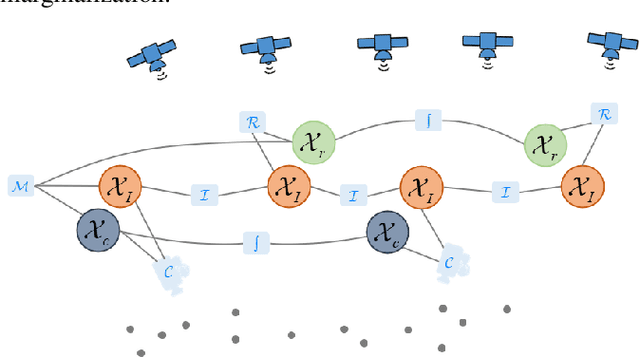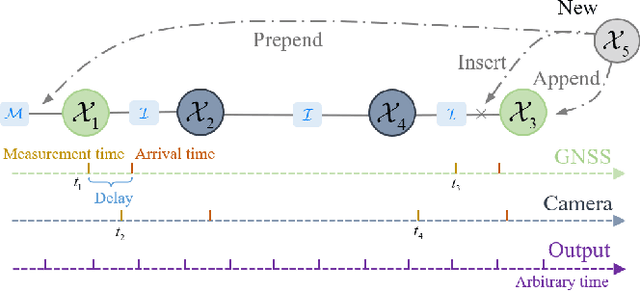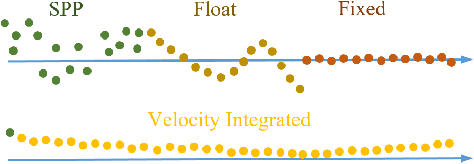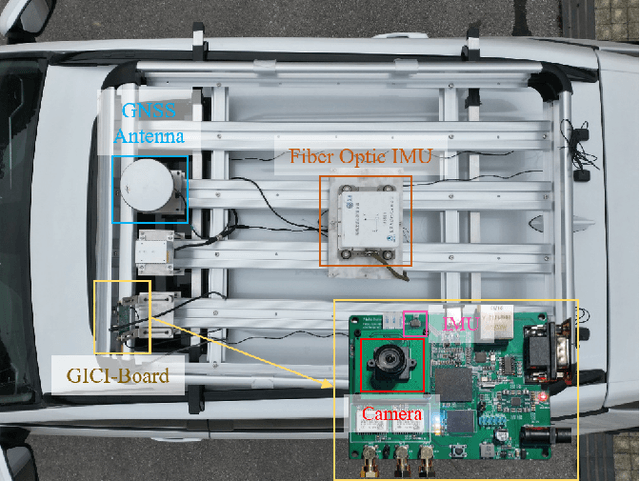Yulong Sun
GICI-LIB: A GNSS/INS/Camera Integrated Navigation Library
Jun 23, 2023



Abstract:Accurate navigation is essential for autonomous robots and vehicles. In recent years, the integration of the Global Navigation Satellite System (GNSS), Inertial Navigation System (INS), and camera has garnered considerable attention due to its robustness and high accuracy in diverse environments. In such systems, fully utilizing the role of GNSS is cumbersome because of the diverse choices of formulations, error models, satellite constellations, signal frequencies, and service types, which lead to different precision, robustness, and usage dependencies. To clarify the capacity of GNSS algorithms and accelerate the development efficiency of employing GNSS in multi-sensor fusion algorithms, we open source the GNSS/INS/Camera Integration Library (GICI-LIB), together with detailed documentation and a comprehensive land vehicle dataset. A factor graph optimization-based multi-sensor fusion framework is established, which combines almost all GNSS measurement error sources by fully considering temporal and spatial correlations between measurements. The graph structure is designed for flexibility, making it easy to form any kind of integration algorithm. For illustration, four Real-Time Kinematic (RTK)-based algorithms from GICI-LIB are evaluated using our dataset. Results confirm the potential of the GICI system to provide continuous precise navigation solutions in a wide spectrum of urban environments.
 Add to Chrome
Add to Chrome Add to Firefox
Add to Firefox Add to Edge
Add to Edge